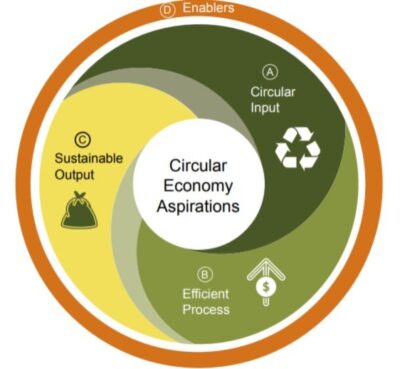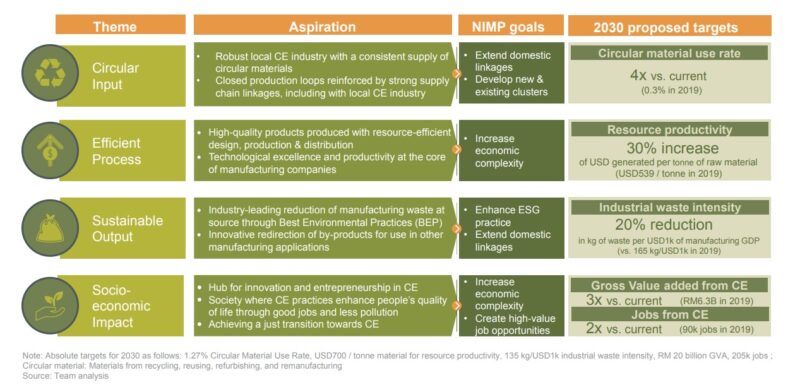
This site
is mobile
responsive

Malaysia has taken a bold step towards a more sustainable future by introducing the Circular Economy Policy Framework for the manufacturing sector. This forward-thinking framework redefines fossil-fuel-based industrial models and ignites a transition towards green growth across the entire manufacturing value chain. Aligned with the objectives of the New Industrial Master Plan (NIMP) 2030, the National Energy Transition Roadmap (NETR), the National Industry Framework for ESG (i-ESG), and the Green Investment Strategy (GIS), it underscores Malaysia’s dedication to building a sustainable investment ecosystem.
The circular economy approach is all about maximising the value of resources through sharing, reusing, repairing, refurbishing, and recycling, thereby extending product lifecycles and reducing waste. From its humble beginnings as an agriculture-based economy in the 1970s, Malaysia has diversified and grown, with its manufacturing sector now contributing a significant 22.6% to the national GDP. As the second-largest sector after services, which accounts for 57.4%, the focus is on steering the manufacturing industry towards becoming a more sustainable and environmentally-friendly ecosystem.

The Circular Economy Policy Framework (CEPF) is aligned with global best practices, setting forth aspirations across four key themes: circular input, efficient processes, sustainable output, and socio-economic impact. With clear targets benchmarked against global Circular Economy (CE) policies, Malaysia aims to achieve these goals by 2030, in tandem with the vision of the NIMP 2030.
To achieve these goals and objectives, the framework has outlined fourteen (14) initiatives grounded in a whole-of-government approach, involving collaboration among various ministries and agencies to foster a more sustainable manufacturing sector.

As the nation’s investment promotion agency, MIDA is instrumental in advancing this sustainable transformation. Through initiative D2: Support export of goods with CE requirements and attract high-value CE investment under CEPF, MIDA will facilitate the export of goods that meet with Circular Economy (CE) standards, while initiative D7: Promotes circular business models. These initiatives are further supported by GIS, which identifies the circular economy as one of seven key investment levers namely Energy Efficiency; Renewable Energy; Hydrogen; Bioenergy; Green Mobility; Carbon Capture, Utilisation and Storage (CCUS), and Circular Economy for the nation’s future.
Malaysia’s commitment to embedding circular economy principles into the manufacturing sector signals a transformative shift in how the country approaches industrial growth. As the sector evolves, it will not only boost economic competitiveness but also contribute to a more sustainable global landscape. This forward-thinking approach ensures that Malaysia remains a key player in shaping the future of manufacturing, where sustainability and innovation are core drivers of success.
